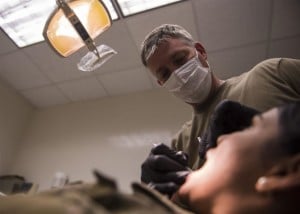A call is the first interaction a patient has with a medical practice. On calling your practice, patients expect undivided attention without waiting. It’s difficult to tell who’s on the other end, so your phone operators must be professional always. Perhaps a loyal client is calling to make an appointment or a new patient calling your practice for the first time. There’s a chance that it might be other physicians or industry partners calling about referrals and prescriptions. All these scenarios explain the importance of quality phone answering.
There’s a catch
If it’s your medical staff handling phone calls, they have to first get away from patients to give full attention to callers. This requires the employee to proper telephone answering etiquette requiring appropriate pitch, diction, tone, and clarity. It’s very important to answer all calls at your practice in a pleasant and courteous manner. Overall, handling patient information on the phone must comply with the Health Insurance Portability and Accountability Act (HIPAA) regulations.
Techniques when answering medical practice calls
Active listening
The phone operator in your practice needs to listen effectively during all calls to detect the level of urgency and importance. It allows distinguishing between emergency calls that need immediate attention and others that can be forwarded to the physician for handling later. Your phone operator must allow callers to voice their concerns instead of anticipating what they’re to say next. Additionally, the operator should record accurate details of patient concerns to avoid the physician from making a wrong diagnosis. Good listening limits errors leading to patient satisfaction.
Pleasant voice
On calling your practice, patients look forward to a pleasant voice greeting them on the other end. Therefore, when looking for doctor answering services , consider an agency with operators who smile while talking to patients on the phone. In addition, these must clearly enunciate by distinctively pronouncing each word. It requires the use of proper diction that patients clearly understand. The operators must use a pleasant tone that makes patients comfortable. Speaking with clarity will allow patient coherence and intelligibility of the conversation.
Prompt phone answering
It’s important to answer phone calls professional after ringing for about three times. This doesn’t make the caller wait for too long. When calls are too many, opt for the first caller unless the second one is making an emergency call. Before putting the caller on hold to communicate to the physician let the caller know to avoid frustrating them. Some of the medical malpractice claims aren’t true. A medical answering service can offer call logs for use as a defense for such frivolous cases. For all calls, the operator must identify the practice and their name before answering. Noting the caller’s name is essential in case there’s a need to refer back to the conversation.
For call screening, ensure to let the caller know that the physician will call back when their issue isn’t an emergency case. It’s very important to get the callers, permission before putting them on hold to allow connecting to a physician or colleague. The telephone operators must alert callers when the physician is available when scheduling an appointment. After the call, operators must thank the caller and it’s the person at the other end to end the call first.
Types of calls expected in a medical practice
Incoming calls
These are calls received in medical practice. Your operator must know who is calling as a way to maintain professionalism and for future reference. Types of regular incoming calls in a medical practice include:
- New patient requests
- Appointment scheduling
- Directions to the medical practice
- Inquiries about billing information
- Calls from insurance companies regarding claims processing
For all calls, professional conduct when answering is invaluable. It’s not necessary for your operator to get pissed off by an angry caller. The trick is to lower the tone and volume so the angry caller calms down. Getting down to the source of the issue is better than losing cool. Professional phone operators ensure to understand the issue, take notes, and finding appropriate solutions.
Outgoing calls
In medical practice, incoming callers initiate most of the outgoing calls. Keep in mind that your phone operators must maintain courtesy and tone just like for incoming calls . Outsourcing call answering to professionals is a smart move for any medical practitioner. However, you must partner with an answering service committed to patient service. A doctor answering service is your growth partner to help your practice improve its bottom line. With answering agents helping your practice offer patients a customized experience, your clinic will stand out from other service providers.
Additionally, your operators must answer all questions that patients might have. Other materials required for efficient and effective outgoing calls include:
- Charts
- Billing Information
- Insurance Claims
- Physician response
HIPAA compliance in medical practice
In the medical industry, all practices must adhere to HIPAA regulations. These require the utmost privacy of patient personal health information. Apart from safeguarding and protection of patient information, your practice must respond to patient request for information with all calls on an appropriate line. All patient details must be kept confidential at all times without unnecessarily sharing them via email or text without encryption. This eliminates data leakage that leads to the publicizing of patient health records. It makes your practice liable to lawsuits and heavy fines and penalties.
In conclusion
Hiring a professional answering service is the best way for a medical practice to ensure quality phone answering. This will guarantee HIPAA compliance and immediate answering of patient calls even during after-business hours. Medical practice is a big problem in most medical providers. Luckily, some preventive measures can help you to avoid these costly claims. The trick is to partner with a reputable answering service to help your practice deliver high-quality patient care and avoid such costs. Choose an answering service that offers quality service that guarantees 100 percent HIPAA compliance.
Author Bio
Mike Haynes is a Fitness & Nutritionist Who Believes in Living a healthy Lifestyle.He Loves to write about Fitness & Nutrition. He is also a expert advisor of Medical billing company which is dedicated to provide accurate billing of patients,daily fitness tips, detailed fitness guides & fitness gear reviews.









